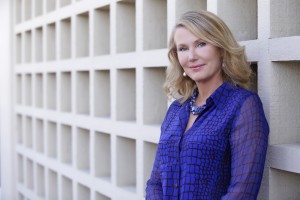
By Sandy Cardy
Special to the Financial Independence Hub
“’Tis the Season…” but the season for what exactly? “To be jolly” if you stick to the lyrics. But who can stick to the lyrics when all around you there are others hurtling towards excess?
Given that this is the same every year, it would be more factually correct for the lyric to read, “’tis the season for consumption” – and consumption on a truly grand scale. The numbers are mind-boggling. $595 billion in the US alone splurged on holiday season 2013 (from Thanksgiving to Christmas). And likewise for food consumption – an all-you-can eat binge and perfect recipe for calorie-bloat and food comas. So maybe the song ought to go, “‘tis the season for over-consumption.”
Just as over-consumption of credit can cause debt troubles, over-consumption of the wrong foods or lifestyle can leave you with harm
“’Tis the Season …” but the season for what exactly?
“To be jolly,” if you stick to the lyrics. But who can stick to the lyrics when all around you there are others hurtling towards excess?
Given that this is the same every year, it would be more factually correct for the lyric to read, “’tis the season for consumption” – and consumption on a truly grand scale. The numbers are mind-boggling. US$595 billion in the US alone was splurged on holiday season 2013 (from Thanksgiving to Christmas). Likewise for food consumption: an all-you-can eat binge and perfect recipe for calorie-bloat and food comas. So maybe the song ought to go, “‘tis the season for overconsumption.”
The season for overconsumption

Just as overconsumption of credit can cause debt troubles, overconsumption of the wrong foods or lifestyle can leave you with harmful health debt. But is it any wonder folks overconsume? The pressure to do so begins early and the temptation is irresistible! You’re not even safe if you stay home, what with a shopping basket only a click away.
The holiday season is a very personal balancing act: to find that sweet spot between making the season jolly and avoiding the sinkhole of too much consumption (both lifestyle and financial).
The horrors of falling down that hole are real: it can bring bloating to your gut or crash dieting to your savings plans. At first glance then, overconsumption’s effect on your health and financial well-being appear to be polar opposites. Yet they share one important thing in common: finding the ‘sweet spot’ and getting a grip on a very slippery commodity; satisfaction.
Health-wise there’s that after-turkey-dinner “couldn’t eat another thing” discomfort, of course. But after a nap, who’s not good for a little something more, and come tomorrow, it’s up and at ‘em for the Big Boxing Day Blowout. Traditional holiday fare is so full of richness, ‘tis arguably the season of sustained poisoning. To shield yourself demands careful attention to what you eat and drink, and taking into account your unique bodily make-up, strengths and weaknesses. And that’s where nutritionists can be worth their weight in gold.
Only 10% have reached retirement saving goals
On the financial front, consider this. Canada is among the most fiscally prudent of nations. But according to a November 2015 article in the Globe & Mail, “High Debt Load Weighs on Baby Boomers,” nearly 50% of Canadians aged 55 to 64 estimate they have amassed only 10% of their target retirement savings! Even Canadians seem to be finding it difficult to apply one of the simplest financial planning principles – pay yourself before you pay for anything else.
If, like many boomers, your retirement plan is increasingly looking like one of working as long as necessary, what happens if you fall sick?
And when we look at our Visa balances in January, not only are we even further from our savings goals, the sheer shock of the amount owing can cause a huge whack of stress to our already overtaxed systems.
It’s hard for many of us to find the line that demarcates where enough is enough. There really aren’t any checks and balances on our impulse to over-consume. We figure we will take care of it later.
So perhaps that New Year’s Resolution can be about making fresh financial and nutritional goals. Here are some tips to help you finish off the year strong, and get started on the right footing for 2016:
Finding Help
All money decisions you make in your life, both big and small, will have an impact on your retirement. Perhaps what you may need now is a qualified advisor to work alongside and to help you achieve your goals: someone you will come to know well and trust wholeheartedly. A good advisor will ensure you are getting all cost savings and using all tax minimization strategies in order to build your net worth. And most importantly, it’s way more difficult to neglect such simple investment principles with a financial planner looking over your shoulder.
Similarly, it’s important to have one or more health care advisors. Whether you come to this in a health crisis or looking into preventative health, you need the team you build to provide precisely the right kind of support. The practitioners you choose may be from western or eastern medicine, conventional or alternative: it’s your choice. But whoever they are, it is key to find healers who are nurturing, optimistic, and involve you in decisions concerning your health care.
If you are looking for a financial planner and/or a health care advisor my free e-Book can help you get started. Click here to get your free download and start 2016 with a healthy mind, body and bank account.
Pay Yourself First
The old adage, ‘Pay Yourself First,’ we’ve all heard many times. But it is worth saying again : you need to begin to accumulate your retirement savings, as early as possible. If you haven’t yet begun, start now and save at least 6% of your pretax income (so if you earn $50,000, 6% equals $3,000 per year, or $250 per month).
The best way to save? Set up regular fixed automatic contributions (from your bank account to a retirement account) on each payday so you don’t have a chance to spend it. Even if your budget is a little tight, this strategy will force you to make adjustments in your spending habits in other areas.
When it comes to your health, so too should you pay yourself first. Most of us are all too familiar with all the things that we shouldn’t eat. I think it is more important to ensure that you get the right foods in your body, and adopt the pay-yourself-first mindset when it comes to eating. Your health compounds over time too, so load your plate with powerhouse foods such as vegetables and fruits.
Diversification
Just as diversification is important with your investments to reduce market risk (and this is something that a financial advisor can help you with), so too is diversification important with what you eat. Aim to eat a wide spectrum of foods to reduce health risk. If you aren’t sure how to overhaul your diet, maybe begin the New Year with visit to a nutritionist to start you off on the right footing.
So now that 2016 is only a few days away, how about singing along to a new lyric this year –tis the season for wisdom’ –- for beginning something that will lead to many, many more seasons of (relatively) stress-free, debt-free, and trouble-free holidays in the future. Don’t do it alone. Be sensible; choose reliable and productive helpers, like Santa.
 Sandy Cardy is a bestselling author (The Cottage The Spider Brooch and The Second Wife) and one of Canada’s most respected tax and estate planning experts. Diagnosed with cancer in 2012 and now cancer-free and thriving, she speaks and teaches widely on how to make sound personal and financial decisions, embrace radiant health, and live our lives to the fullest. You can sign up for Sandy’s newsletter and download her eBook (7 Steps for Finding the Right Financial Advisor and 7 Steps for Finding the Right Health Care Provider) on her website. You can also find her on Facebook, here and Twitter, here. This article originally appeared on Sandy’s website earlier this month and is republished here with her permission
Sandy Cardy is a bestselling author (The Cottage The Spider Brooch and The Second Wife) and one of Canada’s most respected tax and estate planning experts. Diagnosed with cancer in 2012 and now cancer-free and thriving, she speaks and teaches widely on how to make sound personal and financial decisions, embrace radiant health, and live our lives to the fullest. You can sign up for Sandy’s newsletter and download her eBook (7 Steps for Finding the Right Financial Advisor and 7 Steps for Finding the Right Health Care Provider) on her website. You can also find her on Facebook, here and Twitter, here. This article originally appeared on Sandy’s website earlier this month and is republished here with her permission


